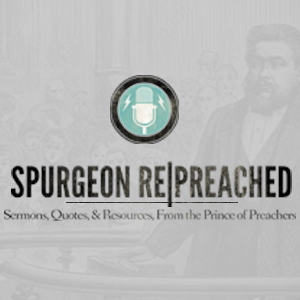The following is a brief review of three essential works of George Smeaton used in conjunction with Logos Bible Software named: The Smeaton Theology Collection on Logos Bible Software.
So, Who Is George Smeaton?
George Smeaton lived from 1814 to 1889 and is considered to be one of the “most outstanding theologians” of the day. Yet, at the same time, he is so little known in our era.
He studied at Edinburgh University and spend the last 30 years of his life as Chair of Exegetical Theology at New College in Edinburgh. He was a contemporary of as well as a friend with men like Robert Murray McCheyne, Andrew and Horatius Bonar, and Henry Moncrieff. A one time Principle of the Free Church of Scotland, John Macleod, once described Smeaton as “the most eminent scholar of the set of young men who with M’Cheyne and the Bonars sat at the feet of Chalmers.”
What Did He Write?
During the course of his life he wrote two wonderfully careful and rich works on the doctrine of the atonement, as well as delivered a series of lectures on the doctrine of the Holy Spirit:
- The Doctrine of the Atonement as Taught By Christ Himself
- The Doctrine of the Atonement as Taught By the Apostles
- The Doctrine of the Holy Spirit
Why Should You Read George Smeaton?
Smeaton’s works on the atonement are wonderfully simple, biblical and profound. Phil Gons describes them as one of the first places one should go when wanting to take a closer look at the atonement of Christ. This certainly is a valid statement. If one is looking to learn about the atonement, the first thing to do is study the Scriptures. Smeaton will be a sure and steady guide as to what Christ himself said regarding the atonement, as well as what his apostles said.
Before that, in the book “The Great Exchange” Sinclair Ferguson spoke of Smeaton as “an outstanding scholar with a brilliant mind and a deep love for Christ.” He then went on to describe his works on the atonement by saying, “these great volumes should regularly be in the hands of every person who teaches and preaches the Gospel of Christ. They are treasure troves.”
Smeaton’s work on the Holy Spirit is just as clear and rigorously Biblical as he seeks to explicate the person and work of the Holy Spirit by exegeting what the Scriptures tell us beginning with the Old Testament and through into the New and now in the life of the church.
Smeaton’s volumes are clear, insightful, exegetical studies of Scripture. Which is what makes them so relevant still today.
Why Read Smeaton in Logos Bible Software?
First, purchasing the hard copies of Smeaton’s three volumes will set you back at least $46 for the two volumes on the atonement. Then, you’ll have to go hunting for his third volume on the Holy Spirit as it appears to be out of print. Once a title makes it into Logos, one doesn’t have to worry about it going in and out of print.
Get the three volume set on Logos for only $32.95 here. This is a special deal for you as a reader of The Old Guys.
Second, as I mentioned above, what makes these works so helpful is how rigorously Biblical Smeaton is. What that means is that these volumes are packed with Biblical references.
If you are like me, you may have to fight the tendency to move too quickly past these references to Bible verses in the different books you read. Instead we have to fight to take the time to read the Scriptures cited by different authors to back up what they are saying. We should do this as people who are most interested in learning what Scripture says and seeking to see if what the author is saying is true is really so.
Reading this title in Logos makes this incredibly easy (see the picture below). All one needs to do is hover their mouse over the verse reference and up pops the quotation in full in your favorite Bible version. This is also helpful when verses are quoted in an old book like this in older English and you would like to read it in a more modern translation.
Third, if a word or concept strikes you as something you would like to dig further into or learn more about it is a matter of a couple clicks (instead of minutes or hours) to access multiple other resources.
Fourth and finally, if you use a mobile phone or tablet with the free Logos Bible app you have these three meaty volumes with you at no additional weight!
Conclusion
George Smeaton’s works are worth inclusion on your bookshelf, digital or physical. Both volumes on the atonement are still in print by Banner of Truth here. However, these wonderful works are made so much more accessible, searchable, and above all easier to weigh against Scripture with Logos Bible Software.
Finally, I’d love to know if any of you have read George Smeaton. What are your thoughts?









